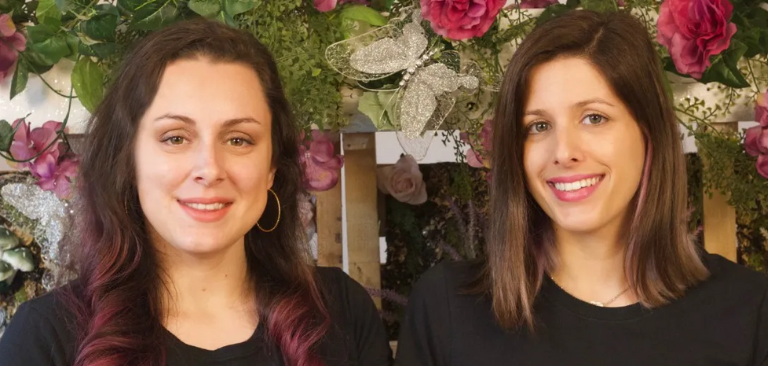Facebook does not seem to recognize that marijuana is legal in some jurisdictions. Not only has Facebook been censoring marijuana-related posts, but also content about legal cannabis products such as hemp bioplastics, and educators trying to raise awareness about marijuana for medicinal purposes.
In Canada, a group called Mary Mothers, created by two moms from Montreal to offer maternal mental health advice and how marijuana fits into their lives, was forced off Facebook due to censorship of marijuana content.
By the time its founders decided to quit Facebook, the group, started in 2018, had more than 5,000 members.
“They said that if group admins are not doing a good enough job moderating the [cannabis] content, then the group would get shut down,” one of the group’s founders Annie Bertrand said, speaking to The GrowthOp.
Even after making the effort to remove posts promoting the gray market marijuana business, Facebook still sent violation notices to the group’s admins. Realizing that they would continue getting the violation notices, the group’s founders abandoned Facebook and built their own site.
“We just fully walked away from those 5,000 people because it was just too stressful every day waking up and wondering, is everything that we’ve worked on going to be gone?” Bretrand said. “It took a lot of months to come to terms with it. But we just realized we had all our eggs in Mark Zuckerberg’s basket and he doesn’t want to hold it,” she added.
Mary Mothers is not the only one affected by Facebook’s strict guidelines on marijuana-related content. Everyone promoting marijuana, from educators to retailers in the cannabis and hemp industry are getting censored.
Sarah Lovegrove, a cannabis educator who left nursing in 2018 to increase awareness about the effectiveness of cannabis and psychedelics in PTSD treatment, has also had her posts censored in Instagram.
“Instagram is so widely used and has such potential and so does Facebook. But there’s a lot of limits,” she said, speaking to The GrowthOp. “It limits our capacity to provide public education in any kind of accessible way. It just perpetuates stigma and dangerous use of substances. People are using these substances whether they’re educated about them or not. And it creates a distinct environmental harm if we are not educating around it.”
Former actor Jim Belushi, who is now a cannabis grower, took to Twitter to complain about Facebook’s censorship. He wrote:
“So sick of Facebook / Instagram. They shadow banned my farms Facebook page Belushi’s Farm and our Instagram. PLUS, they constantly take down our content. Don’t they know cannabis [is] a medicine?”
Facebook’s marijuana content policy extends to hemp businesses, including those that manufacture paper, bioplastics, and superfoods.
“All this stuff should be fair game and shouldn’t be limited because there’s a hemp component or hemp ingredient,” said Morris Beegle, the head of We Are For Better Alternatives, a group of companies that deal in hemp products, including hemp clothing and paper.
“I think Congress made it clear with the Farm Bill. Canada has made it clear for 20 years that hemp foods are legal and Europe has made it clear for 20 plus years, with hemp foods and building materials and bioplastics. I think that eventually, we’ll get there. But maybe it’s going to take federal legalization here in the United States or decriminalization.”
Most of the people interviewed by The GrowthOp claim Facebook has intensified its moderation of cannabis content in recent weeks.
“I feel like it’s generally been the worst it’s been, in my experience, in this past month,” said Kendra Nicholson, a marketing consultant in Toronto who helps marijuana retailers.
“It’s just such a risk to potentially lose what little you have,” she added. “We’re all kind of biding our time in terms of when and where your account could be taken away from you.”
Facebook’s main platform’s policies prohibit “attempts by individuals, manufacturers, and retailers to purchase, sell, or trade non-medical drugs, pharmaceutical drugs, and marijuana.”
Instagram, which was acquired by Facebook for $1 billion in 2021, also prohibits marijuana content, but with more specific wording. Its community standards state:
“Instagram doesn’t allow people or organizations to use the platform to advertise or sell marijuana, regardless of the seller’s state or country.”
Additionally, the photo-sharing platform does not allow cannabis businesses to promote their products using its advertisement tools.
In contrast, other social networks such as Twitter and Clubhouse are a little lax in censoring cannabis content.
According to some, Facebook might be banning marijuana content to avoid problems with governments.
“This is not that important to them from a business perspective,” said Rick Moscone, the co-chair of the Canadian Marketing Association, a cannabis marketing group.
“They’ve got other battles that they’re fighting. They’re looking at this and saying we don’t need to be caught in the middle here. There are not enough dollars to be made. We’ll wait until there’s absolute clarity around this stuff and then we’ll play in this sandbox.”













